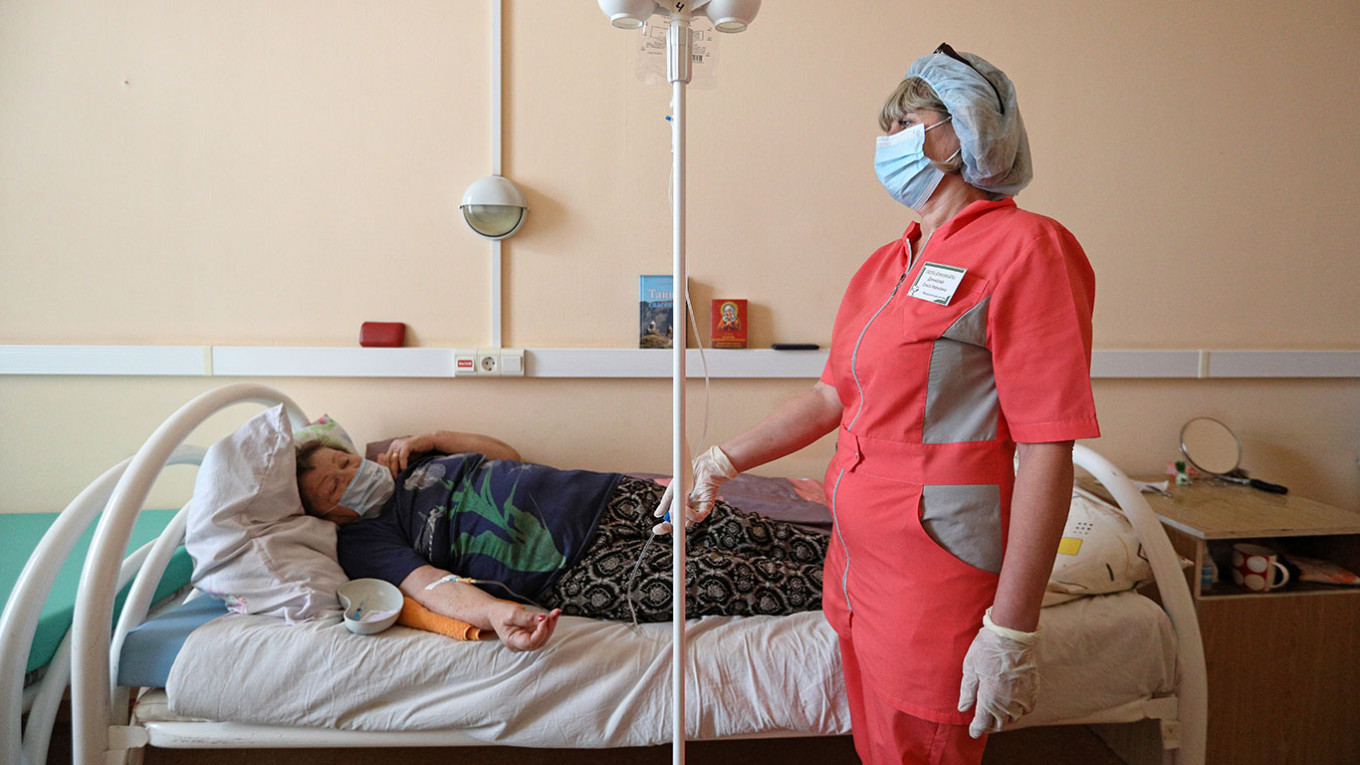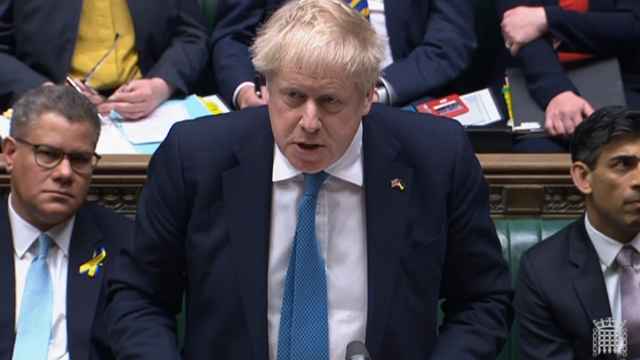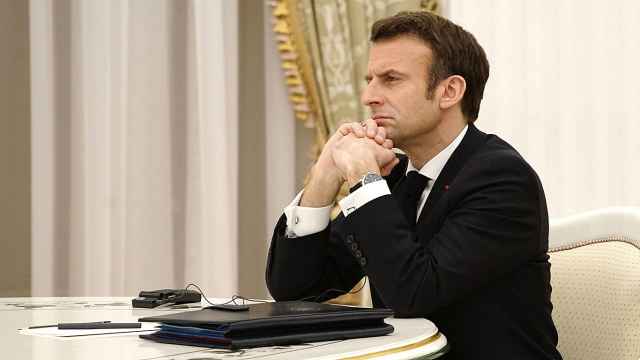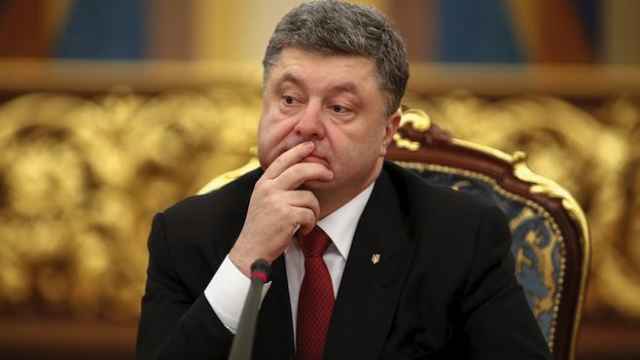Earlier this week, pharmaceutical giant Johnson & Johnson joined the growing numbers of Western firms to announce a new scaling back of operations in Russia.
Having already suspended new investments, pulled advertising and halted enrolment in medical trials there at the beginning of March, the company had drawn scorn for not going far enough from various high-profile campaigns agitating for a full-scale boycott of Russia in the wake of its invasion of Ukraine.
In response, Johnson & Johnson said it would halt the supply of its non-essential personal care products — such as Listerine mouthwash and Aveeno skin creams — while reaffirming its “commitment to supply our medicines and medical devices” to Russia.
That approach reflects the narrow ethical path the world’s largest pharmaceutical companies are trying to navigate in their dealings with Russia — attempting to join the global outrage at Russia’s actions and corresponding corporate exodus while not depriving sick Russian patients of life-saving drugs.
“Literally if our products don’t get to the patients in need, people will die or have severe consequences,” Johnson & Johnson executive vice president Joe Wolk told investors in March, defending the decision to continue medicine sales in Russia.
Some of the world’s largest healthcare and pharma firms — the likes of Pfizer, AstraZeneca, Glaxosmithkline, Merck, Sanofi and Novartis — have taken a similar stance by halting new investments, suspending clinical trials and limiting sales of critically important medicines.
In a bid to show they are not profiting from their Russian operations, many have pledged to direct any proceeds from Russian drug sales to charities and humanitarian groups that support Ukrainian refugees and relief efforts.
“Pharmaceutical companies have this special dilemma,” said Judy Twigg, a professor at Virginia Commonwealth University who specializes in Russia’s healthcare system. “They’re very deliberately trying to demonstrate that if they are going to continue providing essential medical support for the Russian population — who they are argue are not responsible for the war and shouldn’t be punished — then they are making it clear they aren’t going to benefit financially from those sales, and will channel profits to Ukraine.”
For some, this is not enough. Jeffrey Sonnenfeld, a professor at Yale School of Management who has led a campaign calling for firms to withdraw from the Russian market, says the bulk of the world’s top pharma firms are just “buying time,” arguing they have “postponed future planned investment, development and marketing, while continuing substantive business” in the country.
But others who have pushed for a Russia boycott say Big Pharma has — so far — managed the dilemma as well as it could have.
“We would never withdraw life-saving medicines from any country … and the industry has stopped new investment and the sale of non-essential products like we called for,” said Jeremy Levin, chairman and CEO of biotech firm Ovid Therapeutics, who authored an open letter from the life sciences industry backing “economic disengagement” from Russia.
But as companies such as Johnson & Johnson and Nestle have discovered, a nuanced message of a partial withdrawal from the Russian market on humanitarian grounds is a tough sell to outraged consumers and worried shareholders in the West.
“The cynic in all of us says they’re saying all these things about wanting to continue to provide humanitarian medical support for innocent people in Russia, but they actually just want to continue making money off the very large Russian market,” said Twigg.
“Increasingly, staying in the Russian market is going to turn into a money-losing proposition … It’ll be interesting as time goes on to see the extent to which their strategy changes as they can no longer meaningfully make money by serving the Russian market.”
Several industry representatives declined to speak with The Moscow Times for this article, pointing instead to previous company statements about their decisions to scale back operations in Russia and provide financial and medical support to Ukrainian causes.
Companies have stressed that Russia is a small part of their global footprint. Both Pfizer and Johnson & Johnson told investors Russian sales comprise less than 1% of their global revenue.
For clinical trials — where Russia is a much larger market, particularly for early-stage oncology studies — experts said companies could easily switch recruitment to other markets, in an easy, low-cost way of demonstrating a partial exit.
For Russia, the stakes are potentially much higher. Studies estimate that up to 70% of Russian drugs are either directly imported to or manufactured in Russia by Western companies. That is despite a decades-long campaign by the Kremlin to boost the country’s domestic biotech industry and make Russia more self-sufficient.
Russia’s health watchdog warned Wednesday of a booming online black market for drug sales amid shortages in pharmacies and reports of panic buying.
Amid calls to nationalize or expropriate the assets of foreign firms who leave the Russian market — and strict capital controls forbidding many firms from sending revenues back to their corporate headquarters — Levin said it is up to the Kremlin to ensure the sale of essential medicines does not become a prohibitively expensive or risky operation for Western firms.
“That would be the Russian government making war on their own people,” he told The Moscow Times. “That’s the Russian government making the decision that they will not purchase these medicines for their patients in a way that ensures they get them. That’s a Russian government problem, not an industry problem.”
Like many companies who have left the Russian market, pharmaceutical firms have positioned their scaling back as a suspension or halt to operations, rather than a permanent withdrawal. Some commentators see this as an attempt to avoid a blowback from the Russian authorities, but there are concerns within the boycott movement that businesses could be keeping their options open for a return to the Russian market in the future, once the public outcry dies down.
Levin said that would be a dangerous move for his industry and warned his larger peers against restarting sales of non-essential medicines.
“It would be shameful and would represent a fundamental betrayal and a cynicism. If companies are willing to betray their values and go back into a country which has devastated another country and slaughtered so many people, then shareholders have to ask the question: is the leadership of that company living up to the values that the board and shareholders truly expect,” he said.
“I would expect a shareholder revolt on that. How can shareholders trust those companies to behave ethically if they are violating their values?”
A Message from The Moscow Times:
Dear readers,
We are facing unprecedented challenges. Russia's Prosecutor General's Office has designated The Moscow Times as an "undesirable" organization, criminalizing our work and putting our staff at risk of prosecution. This follows our earlier unjust labeling as a "foreign agent."
These actions are direct attempts to silence independent journalism in Russia. The authorities claim our work "discredits the decisions of the Russian leadership." We see things differently: we strive to provide accurate, unbiased reporting on Russia.
We, the journalists of The Moscow Times, refuse to be silenced. But to continue our work, we need your help.
Your support, no matter how small, makes a world of difference. If you can, please support us monthly starting from just $2. It's quick to set up, and every contribution makes a significant impact.
By supporting The Moscow Times, you're defending open, independent journalism in the face of repression. Thank you for standing with us.
Remind me later.







